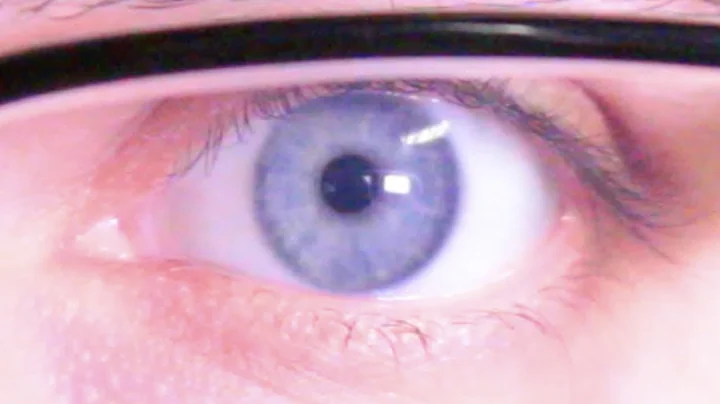What is better for eyes: higher pixel density vs larger screen size?
Solution 1
The question is too wide. Balance of screen size / screen resolution is very individual.
I worked with laptop (15.4", 1680x1050) on Windows 7. I've found that everything looks small. Yes, you can increase font size, adjust DPI, etc. But in the major number of applications you can't increase size of icons in toolbar and other UI controls even via low-quality zooming.
Now I use LG IPS Monitor MP55 (21", 1920x1080). Quite good but anyway I prefer old Asus VW22 (22", 1680x1050) because of larger real screen size.
So as for me 27" 4K is better that 24" 4K.
Solution 2
I think 27" 4K is better then 24", for computer use. I have a good 2.5K and I don't see any pixelisation (but the scripts/icons are very tiny).
Please note that computer screens are not used like television screens: we are nearer to the screen as we should be to watch movies: We move the head to read menus, windows, etc. (especially with big screen or multiple screens), but this allow us to use information quicker than to switch windows. To watch movies, we must allow some more distance, and get most of the screen without moving our head, so if you watch a lot of movies and you cannot sit some foot behind, a 24" should be better.
Personally, I would not yet but a 4K: not so high quality (or very expensive). OLED are also not so long-lasting (8h per day every day). We are still waiting the promised "better pixels" (which are slowly coming to TV), so better colors (like the original UHD specifications) more bit depth (also in original UHD specification), more static contrast [and these reference monitors are very very expensive]. And BTW I prefer multiple monitors.
Related videos on Youtube
Comments
-
 Poliakoff over 1 year
Poliakoff over 1 yearI am usually spending over 8 hours a day using PC at worktime, that's why I want to buy a monitor that will be most comfortable for my eyes. I decided to buy 4K display since I usually buy such things to use for a long time, over 5 years or so. I know that's not a lot of 4K content for now, but I expect more of it at near future.
So the question is: will be better for eyes to use 24" 4K display (like Dell P2415Q, for instance) or 27" one (like Dell P2715Q)?
-
 Bort about 8 yearsI can tell you that those aren't really going to help you much. The biggest difference you can make is using white text on dark backgrounds (use a screen-inverting software like NegativeScreen), and turning-down the color-temperature of your monitor with software like f.lux (google it). Also, this question is probably going to be deemed off-topic here, since this is a Q&A site about computer software and hardware. Your question has also been asked many times.
Bort about 8 yearsI can tell you that those aren't really going to help you much. The biggest difference you can make is using white text on dark backgrounds (use a screen-inverting software like NegativeScreen), and turning-down the color-temperature of your monitor with software like f.lux (google it). Also, this question is probably going to be deemed off-topic here, since this is a Q&A site about computer software and hardware. Your question has also been asked many times. -
 eirikdaude about 8 years
eirikdaude about 8 years -
 Poliakoff about 8 years@Bort Thanks! I already use hackervision extension for browser. Will give a try to toools you mention. Also isn't tools that use webcam as a light sensor for screen adlustment better than f.lux? And as to difference for eyes — regarding I use all those tools, which display will be better still? Or it makes no difference?
Poliakoff about 8 years@Bort Thanks! I already use hackervision extension for browser. Will give a try to toools you mention. Also isn't tools that use webcam as a light sensor for screen adlustment better than f.lux? And as to difference for eyes — regarding I use all those tools, which display will be better still? Or it makes no difference? -
barlop about 8 yearsyou can get something to help block out blue light. like ocushield.com
-
 Bort about 8 yearsFlux changes color temperature. Just read about it
Bort about 8 yearsFlux changes color temperature. Just read about it -
 Poliakoff about 8 years@Bort I actually did. Color temperature won't change automatically in case of artificial lighting changes inside the room, only measuring device will help. Thnx anyway.
Poliakoff about 8 years@Bort I actually did. Color temperature won't change automatically in case of artificial lighting changes inside the room, only measuring device will help. Thnx anyway. -
 fixer1234 about 8 yearsA lot depends on content and viewing distance. Things will be sharpest at their native resolution. Text will be easier to read if it's displayed in a certain size range. Pixel density will determine what size the native resolution is displayed. Start with the distance at which you will view the monitor. Go to a store and compare monitors of different pixel densities at that distance. Once you find the best density for you, screen size at that density will determine how much can be displayed.
fixer1234 about 8 yearsA lot depends on content and viewing distance. Things will be sharpest at their native resolution. Text will be easier to read if it's displayed in a certain size range. Pixel density will determine what size the native resolution is displayed. Start with the distance at which you will view the monitor. Go to a store and compare monitors of different pixel densities at that distance. Once you find the best density for you, screen size at that density will determine how much can be displayed.
-
-
Devin almost 6 yearsHow was this possibly selected as the best answer?






